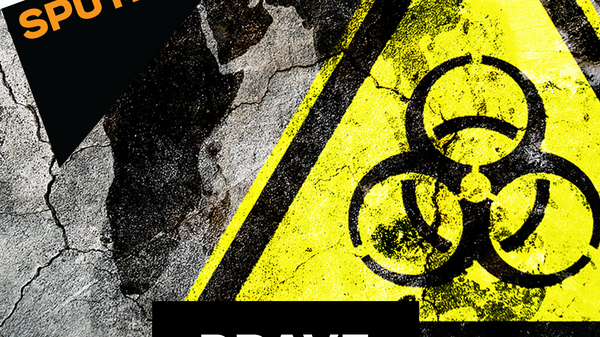Adam Garrie, the director of Eurasia Future, a UK based online magazine, joins the program to discuss this issue.
Adam starts off talking about Russia, and Jeremy Hunt. Adam doubts that there will be a major policy shift from what the policy has been under Theresa May. “Hunt will follow the Theresa May attitude to Russia. It’s a bit difficult to say because Russia has not been in the news over the past few months. Now that the Mueller report has been done, and the chips from that are beginning to fall, people may be slowly moving on from the obsession with Russia…” Adam has, perhaps surprisingly, a slightly positive feeling about Boris Johnson’s foreign policy. “Unlike Theresa May, Boris Johnson does actually know a bit about the world… That is why it is sometimes perplexing to see that he sometimes goes out of his way on many occasions to act as though he is somebody who does not, and as far as that is the case, I actually don’t think that his incredibly unremarkable period as foreign secretary should be overanalyzed…. I think that a better idea in order to understand where his foreign policy will be going is to look at some of the old articles he wrote in places like The Telegraph and The Spectator, and his views of foreign policy are often quite interesting. For much of his journalist career, he was something of a foreign policy realist. He was someone who almost had fun with it, a ‘kind of healthy skepticism with a piece of British irony mixed in’, to quote Jeremy Corbyn, the opposition leader. That certainly puts him out of step with the David Cameron, Theresa May and frankly, Tony Blair style of foreign policy, which was essentially rubber-stamping whatever Obama or later Trump, would say in Washington. Boris’s foreign policy isn’t going to be a priority in his leadership, Brexit is… That means he may be too busy to do anything stupid…”
As far as UK relations with the US goes, Adam says that Jeremy Hunt has good ties with the American business community, but unlike Boris Johnson, he may not enjoy a personal relationship with Donald Trump. “But Hunt is certainly pro-America in terms of his business policies. As Hunt is a kind of ‘soft-Brexiteer’, he voted to remain, it could be that under Hunt a would-be trade agreement between the US and the UK would be more difficult because it might bind Britain into a long term or even a permanent customs union with the European Union which would make it more difficult for the UK to make independent trade agreements with countries like China, Russia, Singapore, the States, Canada, etc. Whereas Hunt has good contacts that would facilitate business when it comes to trade with the US, Boris seems to be speaking the kind of language that Trump likes, and he certainly likes him on an individual level. Under Hunt, relations with Trump would be better than under May because May and Trump just never really hit it off. Under Boris I think it would be something of a special relationship, because Boris was a US citizen until a few years ago, and was born in New York, there are that many layers of connection there.”
To the question what will happen to the NHS (The British National Health Service) if Boris takes over, Adam says that nothing very much different will happen from what has happened under Theresa May: “A gradual selling off which began, to be honest, under Tony Blair, and continued under every Prime Minister both Tory and Labour. I don’t see that changing under Johnson, nor do I see a massive one-off sell-off. It’s not going to be one thing or the other. But because Johnson has a way of pressing the buttons of the liberal elite, I think there might be a bit of scrutiny because the NHS transcends left and right in terms of its support throughout Britain. Anything that is semi-controversial that Johnson does, the media won’t let him off the hook, whereas with Theresa May, we saw failure after failure, they were giving her pass after pass. A bit of scrutiny toughens one up and she never really got that.”
“…Trump has certainly been a departure from the European style Obama: ‘let’s kill people in the name of human rights’, with Trump it’s more like: ‘pay up or we’ll kill you’. It’s one of these bounty hunter shows only backed by the world’s most powerful military. Britain obviously isn’t the world’s most powerful military so it can’t exert this kind of force unilaterally the way that the US can. If Johnson shows his realist side when he comes in, I think if anything he can be a kind of mediating and moderating force under more hawkish elements in Washington. If John Bolton were to give Trump an earful about why 9 out of 10 countries need to be bombed tomorrow, Trump might phone up his good friend Boris tomorrow, and Boris might just tell him that this isn’t necessarily such a good idea… But if Boris gets in, he will be so preoccupied with Brexit and domestic affairs that he will delegate almost all his foreign policy to his foreign secretary whoever that might be.
We'd love to get your feedback at radio@sputniknews.com

